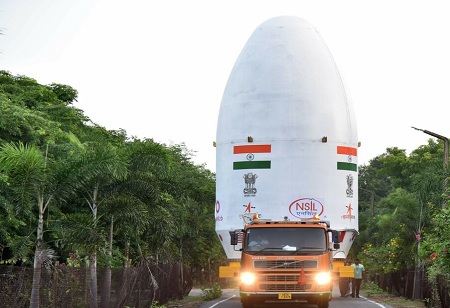The Indian space agency is gearing up for launching the next set of 36 satellites of the UK-based Network Access Associated Ltd (OneWeb) in January 2023 by testing the crucial cryogenic engine of its rocket LVM3.
According to the Indian Space Research Organisation (ISRO), the flight acceptance hot test of a CE-20 engine was successfully carried out for a duration of 25 seconds in the High Altitude Test facility of ISRO Propulsion Complex at Mahendragiri. This engine is earmarked for the LVM3-M3 mission identified for the launch of the
next set of 36 numbers of OneWeb India-1 satellites, ISRO said. The cryogenic upper stage of the LVM3 vehicle (C25 stage) is powered by a CE-20 engine working with liquid oxygen and liquid hydrogen (LOX-LH2) propellants combination. This engine develops a nominal thrust of 186.36 kN in vacuum.
The major objectives of the flight acceptance test were to confirm the integrity of the hardware, assessment of subsystems' performance and tune the engine for meeting the mission requirements parameters for engine tuning for flight operation.
Analysis of test data confirmed the satisfactory performance of the engine systems. This engine will be assembled to the C25 flight stage being integrated for the LVM3 M3 rocket. ISRO's commercial arm NewSpace India Ltd (NSIL) has signed a contra ct with OneWeb to launch 72 satellites in two phases for a launch fee of over Rs 1,000 crore, said Sunil Bharti Mittal, Chairman, OneWeb.
The orbiting of first set to 36 satellites happened successfully on Oct 23 from Sriharikota rocket port in Andhra Pradesh with LVM3 rocket also known as Geosynchronous Satellite Launch Vehicle MkIII (GSLV MkIII). OneWeb plans to have a constellation of 648 satellites in low earth orbit (LEO) to offer its broadband services across the world.
